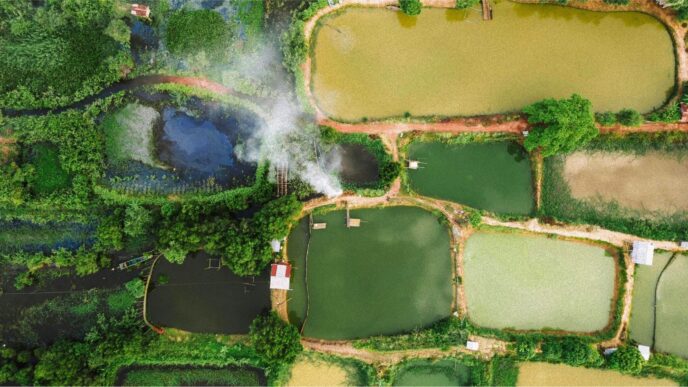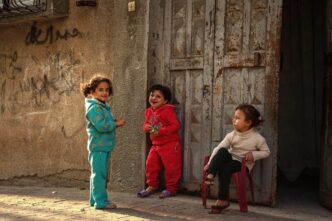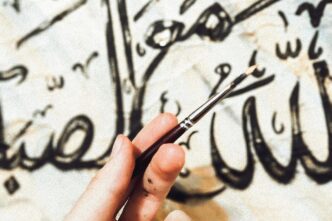When we think of history’s great humanitarians, why don’t we hear the names of Muslim changemakers? The world’s first hospitals, social welfare systems, and global aid networks were pioneered by Muslims, yet their contributions are often overlooked or erased. Muslim history is rich with individuals who embodied the Islamic principles of compassion, charity, and social justice, yet their stories remain largely untold.
Reclaiming this history is crucial, as it not only provides inspiration but also empowers modern Muslim humanitarians to continue their legacy. These figures were not merely philanthropists—they were visionaries who laid the foundations for structured, institutionalized forms of welfare that benefited people of all backgrounds, irrespective of faith or nationality. By exploring their lives and contributions, we can better understand how the principles of Islamic humanitarianism were historically implemented and how they continue to shape the world today.
The Islamic Ethos of Humanitarianism
Islam’s emphasis on humanitarian work is deeply rooted in the Quran and the teachings of the Prophet Muhammad (PBUH). The Quran states: “And they give food in spite of love for it to the needy, the orphan, and the captive.” (Quran 76:8). This verse encapsulates the ethos of Islamic charity—not just giving wealth, but prioritizing the well-being of others, even at the cost of one’s own comfort. Prophet Muhammad (PBUH) was a humanitarian in practice, advocating for justice, freeing slaves, feeding the poor, and establishing social welfare structures such as Bayt al-Mal, an early treasury system designed to distribute wealth among the needy.
Unlike many civilizations where charity was largely informal, Islamic societies developed structured forms of humanitarian aid. The waqf (endowment) system was one of the most groundbreaking financial institutions in history, funding hospitals, orphanages, schools, and public utilities centuries before Western social welfare models emerged. The importance of sustainable humanitarianism in Islamic thought means that aid is not simply about short-term relief but long-term solutions. This ethos has led to the development of hospitals, universities, and infrastructure that have benefited humanity on a grand scale. Islamic humanitarianism is not just about giving—it is about empowering, preserving dignity, and fostering systemic change.
Forgotten Muslim Humanitarians Who Changed the World
Abd al-Rahman III established one of the first free public hospitals in Cordoba, Spain, offering medical care to all, regardless of faith or class. His policies emphasized public health, medical research, and sanitation, helping to transform Cordoba into one of the most advanced cities of its time. His model of universal healthcare and medical innovation influenced European medicine, with hospitals in the Islamic world serving as templates for later Western institutions.
Zubaidah bint Ja’far, wife of Caliph Harun al-Rashid, used her wealth to finance the construction of wells, reservoirs, and canals along the Hajj route from Baghdad to Mecca. Her work ensured millions of pilgrims had access to clean drinking water, reducing death and disease among travelers. Her visionary approach to sustainable infrastructure remains one of the greatest humanitarian contributions in Islamic history and foreshadowed modern water sanitation and irrigation projects.
Fakhr al-Din al-Razi, a renowned scholar, emphasized the importance of granting asylum to persecuted communities, advising Muslim rulers to open their borders to those fleeing oppression. He wrote extensively on the moral duty of rulers to protect and integrate refugees. His advocacy anticipated modern refugee protection laws centuries ahead of their time, establishing principles that influenced Islamic governance and humanitarian policies.
Sultan Baybars, as Sultan of Egypt, established shelters, orphanages, and food distribution centers for the poor, ensuring that orphans and widows were provided for by the state. He was one of the first leaders to integrate social welfare into governance, laying the foundation for state-funded care institutions.
Uthman Dan Fodio led an Islamic reform movement in West Africa that emphasized anti-corruption, social justice, and gender equity. He promoted education for women and established charity networks to care for the needy. His movement demonstrates how Islamic principles have been used to fight oppression and champion social justice, particularly in regions often overlooked in historical narratives.
Haji Ali, a Muslim camel trader in Australia’s Outback, played a critical role in providing food, water, and shelter to isolated communities, pioneering rural humanitarian relief efforts in non-Muslim lands. He represents the often-unrecognized presence of Muslims in global humanitarian efforts outside traditional Islamic territories.
Why Have These Figures Been Overlooked?
The Eurocentric framing of humanitarianism erases Muslim contributions, presenting the notion that social welfare and humanitarian aid originated in the West. Islamophobia and historical revisionism have contributed to downplaying Islamic contributions, framing Muslim civilizations through the lens of conquest rather than compassion. Additionally, internal historical amnesia within the Muslim world has led to a lack of awareness of these contributions, weakening the sense of historical continuity in Islamic philanthropy.
The Relevance of These Figures Today
These figures were not mere philanthropists—they were system-builders who tackled issues like healthcare, refugee protection, and education. Their work reminds us that Islamic humanitarianism is about sustainable change. Modern Muslim humanitarians should draw from their examples by advocating for policy changes, supporting long-term solutions, and challenging structures that perpetuate systemic inequality. The world does not need more short-term charity that simply addresses symptoms—it needs committed individuals who will address the root causes of social issues and rebuild the waqf model to ensure long-lasting impact.
Call to Action: Reclaiming Our Forgotten Humanitarian Legacy
We must actively learn, document, and share these forgotten stories to challenge erasure and inspire future generations. Instead of focusing on one-time aid efforts, Muslim communities must revive the waqf system and support institutions that work towards long-term societal change. Recognizing and elevating the work of contemporary Muslim humanitarians ensures that their contributions are valued and continued. It is time to move beyond temporary relief and reinvest in systems that uplift communities for generations. The responsibility does not lie with institutions alone; it belongs to every individual who can contribute to change. Whether through education, advocacy, financial support, or direct action, every effort counts. If the Muslim world does not reclaim its legacy of social justice, who will?
Conclusion: The Time to Act Is Now
The forgotten Muslim humanitarians of history were visionaries, innovators, and changemakers. They were not passive donors but active architects of social change. Their legacy is not just something to admire—it is a blueprint for action. If we are to truly follow in their footsteps, we must abandon complacency and take decisive steps towards rebuilding sustainable models of humanitarian work. The world does not need fleeting acts of charity; it needs institutions that stand the test of time. We must reclaim the moral and intellectual leadership that Islamic civilizations once championed and build upon it for future generations. Their work is unfinished—will we continue it?
Closing Dua
“O Allah, make us among those who serve humanity for Your sake. Grant us the wisdom to uplift the oppressed, the strength to challenge injustice, and the courage to speak truth to power. Ameen.”
The Humanitarians History Forgot
When we think of history’s great humanitarians, why don’t we hear the names of Muslim changemakers? The world’s first hospitals, social welfare systems, and global aid networks were pioneered by Muslims, yet their contributions are often overlooked or erased. Muslim history is rich with individuals who embodied the Islamic principles of compassion, charity, and social justice, yet their stories remain largely untold.
Reclaiming this history is crucial, as it not only provides inspiration but also empowers modern Muslim humanitarians to continue their legacy. These figures were not merely philanthropists—they were visionaries who laid the foundations for structured, institutionalized forms of welfare that benefited people of all backgrounds, irrespective of faith or nationality. By exploring their lives and contributions, we can better understand how the principles of Islamic humanitarianism were historically implemented and how they continue to shape the world today.
The Islamic Ethos of Humanitarianism
The Quranic and Prophetic Imperative to Serve Others
Islam’s emphasis on humanitarian work is deeply rooted in the Quran and the teachings of the Prophet Muhammad (PBUH). The Quran states:
“And they give food in spite of love for it to the needy, the orphan, and the captive.” (Quran 76:8)
This verse encapsulates the ethos of Islamic charity—not just giving wealth, but prioritizing the well-being of others, even at the cost of one’s own comfort. Prophet Muhammad (PBUH) was a humanitarian in practice, advocating for justice, freeing slaves, feeding the poor, and establishing social welfare structures such as Bayt al-Mal, an early treasury system designed to distribute wealth among the needy.
How Early Islamic Societies Institutionalized Humanitarian Aid
Unlike many civilizations where charity was largely informal, Islamic societies developed structured forms of humanitarian aid. The waqf (endowment) system was one of the most groundbreaking financial institutions in history, funding hospitals, orphanages, schools, and public utilities centuries before Western social welfare models emerged.
The importance of sustainable humanitarianism in Islamic thought means that aid is not simply about short-term relief, but long-term solutions. This ethos has led to the development of hospitals, universities, and infrastructure that have benefited humanity on a grand scale. Islamic humanitarianism is not just about giving—it is about empowering, preserving dignity, and fostering systemic change.
Forgotten Muslim Humanitarians Who Changed the World
Abd al-Rahman III (10th Century Spain) – A Pioneer of Public Healthcare
Legacy: Abd al-Rahman III established one of the first free public hospitals in Cordoba, Spain, offering medical care to all, regardless of faith or class. His policies emphasized public health, medical research, and sanitation, helping to transform Cordoba into one of the most advanced cities of its time.
Why He Matters: His model of universal healthcare and medical innovation influenced European medicine, with hospitals in the Islamic world serving as templates for later Western institutions.
Zubaidah bint Ja’far (9th Century Arabia) – The Woman Who Built Waterways for Pilgrims
Legacy: Zubaidah, wife of Caliph Harun al-Rashid, used her wealth to finance the construction of wells, reservoirs, and canals along the Hajj route from Baghdad to Mecca. Her work ensured millions of pilgrims had access to clean drinking water, reducing death and disease among travelers.
Why She Matters: Zubaidah’s visionary approach to sustainable infrastructure remains one of the greatest humanitarian contributions in Islamic history. Her work foreshadowed modern water sanitation and irrigation projects.
Fakhr al-Din al-Razi (12th Century Persia) – Advocate for Refugee Protection
Legacy: A renowned scholar, al-Razi emphasized the importance of granting asylum to persecuted communities, advising Muslim rulers to open their borders to those fleeing oppression. He wrote extensively on the moral duty of rulers to protect and integrate refugees.
Why He Matters: His advocacy anticipated modern refugee protection laws centuries ahead of their time, establishing principles that influenced Islamic governance and humanitarian policies.
Sultan Baybars (13th Century Egypt) – The Warrior Who Built Orphanages
Legacy: As Sultan of Egypt, Baybars established shelters, orphanages, and food distribution centers for the poor, ensuring that orphans and widows were provided for by the state.
Why He Matters: He was one of the first leaders to integrate social welfare into governance, laying the foundation for state-funded care institutions.
Uthman Dan Fodio (18th Century Nigeria) – Champion of Women’s Rights and Social Justice
Legacy: Dan Fodio led an Islamic reform movement in West Africa that emphasized anti-corruption, social justice, and gender equity. He promoted education for women and established charity networks to care for the needy.
Why He Matters: His movement demonstrates how Islamic principles have been used to fight oppression and champion social justice, particularly in regions often overlooked in historical narratives.
Haji Ali (19th Century Australia) – Humanitarian Innovator in the Outback
Legacy: Haji Ali, a Muslim camel trader in Australia’s Outback, played a critical role in providing food, water, and shelter to isolated communities, pioneering rural humanitarian relief efforts in non-Muslim lands.
Why He Matters: He represents the often-unrecognized presence of Muslims in global humanitarian efforts outside traditional Islamic territories.
Why Have These Figures Been Overlooked?
The Eurocentric framing of humanitarianism erases Muslim contributions, presenting the notion that social welfare and humanitarian aid originated in the West. Islamophobia and historical revisionism have contributed to downplaying Islamic contributions, framing Muslim civilizations through the lens of conquest rather than compassion. Additionally, internal historical amnesia within the Muslim world has led to a lack of awareness of these contributions, weakening the sense of historical continuity in Islamic philanthropy.
The Relevance of These Figures Today
These figures were not mere philanthropists—they were system-builders who tackled issues like healthcare, refugee protection, and education. Their work reminds us that Islamic humanitarianism is about sustainable change. Modern Muslim humanitarians should draw from their examples by advocating for policy changes, supporting long-term solutions, and challenging structures that perpetuate systemic inequality.
Call to Action: Reclaiming Our Forgotten Humanitarian Legacy
Education First
We must actively learn, document, and share these forgotten stories to challenge erasure and inspire future generations.
Supporting Sustainable Muslim-Led Humanitarian Work
Instead of focusing on one-time aid efforts, Muslim communities must revive the waqf system and support institutions that work towards long-term societal change.
Celebrating Muslim Humanitarians in the Present
Recognizing and elevating the work of contemporary Muslim humanitarians ensures that their contributions are valued and continued.
Conclusion: The Time to Act Is Now
The forgotten Muslim humanitarians of history were visionaries, innovators, and changemakers. Their legacy is not just something to admire—it is a blueprint for action. We must ask ourselves: How will we continue their work?
Closing Dua
“O Allah, make us among those who serve humanity for Your sake. Grant us the wisdom to uplift the oppressed and the courage to speak truth to power. Ameen.”














